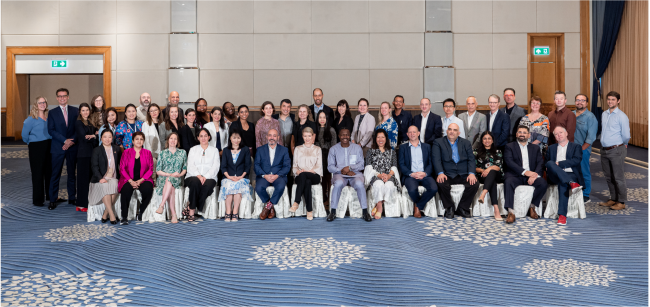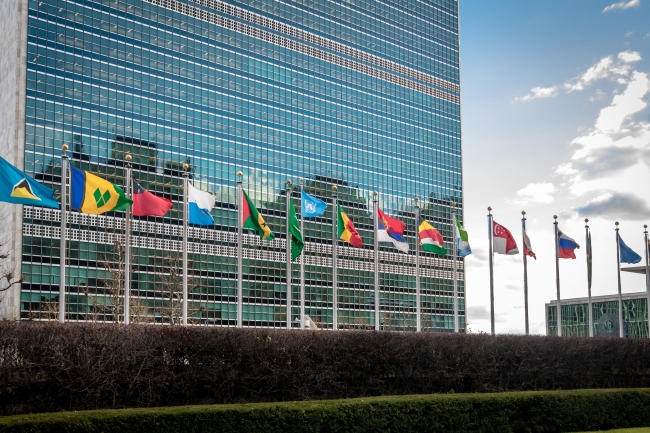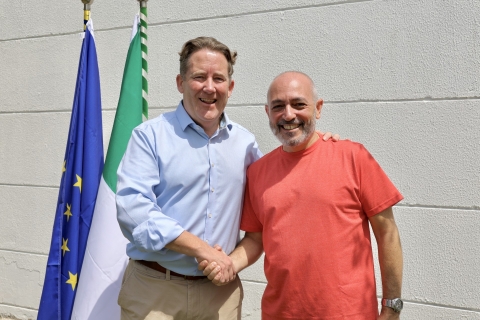UNDP and UNCDF hold their second convening on governance of BigFintech for greater good on the margins of the Singapore Fintech Festival
23 DECEMBER, 2020
Regulators, UN agencies, market actors and representatives from international organizations gathered virtually on December 8th to advance the Dialogue on Global Digital Finance Governance, focusing on the SDG impacts of BigFintechs, as recommended by the UNSG Digital Finance Task Force.
At the gathering, the Dialogue announced the launch of a new working group with BigFintechsto better understand the range of their impacts and catalyze corporate governance innovations that secure these impacts are mitigated, with a particular focus on developing economies. The Dialogue will launch a second working group in 2021 with developing economies to design SDG-aligned governing arrangements of a regional BigFintech.
Some of the other issues discussed on Dec 8th include market concentration, data governance and monopolization risks, as well as the broader role of BigFintechs in support of sustainable development in emerging countries. Some BigFintechs were also present to share their perspectives on their potential impacts and ways in which they are addressing them.
“The emergence of BigFintechs offers many advantages – in particular, for financial inclusion. But, as the Task Force report points out, it also carries risks. Some of these are familiar territory for financial regulators – for example, financial stability. Other risks are new - like competition and data privacy. To effectively regulate the activities of BigFintechs in the financial sector, we will need to meld these broader considerations with the more traditional concerns of financial authorities. This approach may produce more complex trade-offs between competing objectives but it needs to be done (and quickly).” -Agustín Carstens - General Manager, Bank for International Settlements
“Traditionally, the focus of international governance has been on financial stability, preventing money laundering and financial crimes, and protecting consumers. Half decade ago, financial inclusion got embraced as another important objective. More recently, thanks to Network of Central Banks and Supervisors for Greening the Financial System, consensus is emerging around our role in climate mitigation. Now is the time to be even more ambitious and embrace broader aspects of SDGs in how BigFintech platforms are governed or govern themselves.” -Patrick Njoroge - Kenya Central Bank Governor
According to the report “People’s Money: Harnessing Digitalization to Finance a Sustainable Future,” published by the UNSG Digital Finance Task Force in August 2020, BigFintechs are originating from different contexts and are rapidly becoming the new giants of tomorrow’s financial system, from China’s Ant Group to Africa’s numerous mobile money companies, South East Asia’s ride hailing services, Facebook Novi, Amazon and Google in the US, Jio in India, Mercado Libre in Latin America and many more. These platforms have positive impacts - from deepening financial inclusion, to creating livelihood opportunities, to enabling direct citizen action - but also bring new challenges. Governing them effectively will require considering their broader effects on issues such as citizen privacy, digital exclusion, data monopolies, market concentration and even broader areas of sustainable development such as inclusive economic growth, SME development and climate.
“The BIS will do its part to advance discussions on the regulation of BigFinTech: by continuing to do cuttingedge research on relevant issues, by providing critical training on financial regulation to officials from emerging markets and developing countries, and by using our new BIS Innovation Hub to develop new technological applications that strengthen the regulation of a rapidly-evolving financial sector and can be shared as public goods with the central banking community and beyond.” -Agustín Carstens - General Manager, Bank for International Settlements
-----
The Dialogue on Global Digital Finance seeks to facilitate a balanced and more inclusive dialogue, particularly involving developing nations, on SDG-aligned governance of global digital financing platforms. It convenes representatives from central banks, finance, trade and other relevant ministries, cross-sector regulatory bodies, LDCs and non-state actors from developing countries, and representatives from key institutions such as FSB, BIS, IMF, World Bank and Global Partnership for Financial Inclusion affiliated entities. The platform provides a means for advancing consensus on policy and regulatory responses to the development of global digital financing platforms appropriate for developing contexts and economies. It also seeks to catalyze governance innovations that improve consideration of the SDGs and can support developing countries to harness digital finance in leapfrogging towards sustainable development. The initiative is co-chaired by the UNDP Administrator and the Governor of Central Bank of Kenya, funded by the Swiss Agency for Development Cooperation and hosted by UNDP and UNCDF.
Additional quote: “Governance innovations are pre-conditions for harnessing digitalization in delivering financing of the SDGs. Regulations and standards governing digital financing need to be informed by SDG commitments and goals, with a particular need to ensure that the SDGs inform the governance of a new generation of global digital financing platforms with cross-border, spillover impacts. Market actors, both existing and new, play a critical role in developing financial products that take the SDGs into account, both in terms of environmental and social risks and positive impacts about which customers and users care. Governance innovations will be needed to incentivize and, where necessary, require
these developments, as well as mitigate risks from digitalization itself.” - UN Secretary General Digital Finance Task Force report “People’s Money: Harnessing Digitalization to Finance a Sustainable Future”
Press contact:
FDFA Switzerland, Paola Ceresetti, paola.ceresetti@eda.admin.ch, +41792401918
UNDP Geneva: Sarah Bel, sarah.bel@undp.org, +41799341117
UNCDF Brussels: Karima Wardak, karima.wardak@uncdf.org, +32491082475
BIS: Krista Hugues, press@bis.org
Kenya Central Bank: Wallace Kantai, kantaiwg@centralbank.go.ke, +254 20 2860000/ 1370/1/3/95










